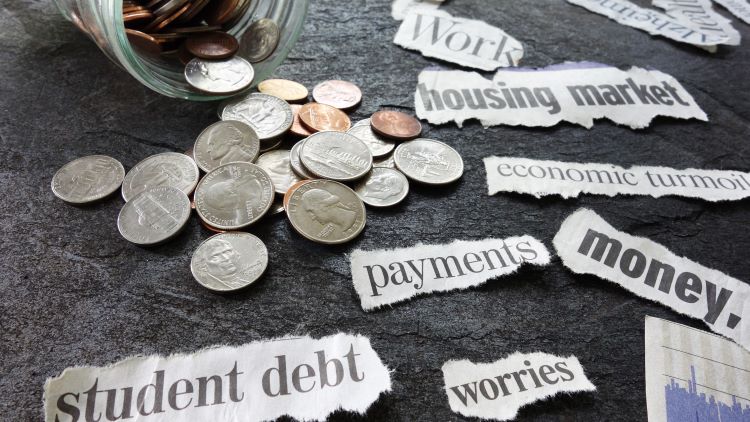
This week Mayor Bowser and the DC Council quickly enacted critical measures that will deliver work and income supports to people and small businesses that are struggling economically amidst the coronavirus pandemic. District officials had already taken quick and decisive action to protect all DC residents from the spread of the virus by declaring a State of Emergency in the District, closing schools, and limiting restaurant operations to delivery and to-go orders only, among other crucial steps. These measures will save lives, reduce immediate hardship, and bolster an economy that faces serious risk.
Here are 5 crucial protections officials enacted in the legislation that you should know about:
- Expansion of Unemployment Insurance: Workers who have been laid off or lost hours due to the coronavirus are able to get unemployment insurance, helping them make ends meet. This will shore up consumer demand because these jobless workers are likely to spend virtually all of benefits they receive, helping sustain the local economy. In the District, weekly benefits are currently capped at $444 per week, depending on work history, for up to 26 weeks for all workers. With mass layoffs and business closures already underway, this provision will immediately lessen the economic harm that these workers are experiencing.
- Expansion of FMLA: The bill extends employment protections under the DC Family Leave and Medical Act (FMLA) to people who cannot work due to a medical issue during a public health emergency. It waives eligibility waiting periods and minimum work hour requirements for workers who are required or recommended to self-isolate. Because the language in the bill is very broad, it will not be clear to what extent the program expands medical leave until the Office of Human Rights releases updated regulations. FMLA requires employers with 20 or more employees to provide 16 weeks of medical leave to qualified employees with a serious health condition every 24 months. (This program is different than the Paid Family Leave Program that is scheduled to go into effect in July 2020.)
- Extension of anti-poverty programs: The bill grants the Mayor the power to support the continuity of, and access to, essential anti-poverty programs—such as food and cash assistance and public health insurance—until 60 days after the end of a public health emergency. Specifically, the Mayor can now extend the eligibility period for individuals receiving benefits, extend the time frame for determinations for new applicants, and take other actions to ensure they can access essential public benefit programs. This means that residents currently receiving these benefits, but who would otherwise need to recertify their incomes to remain eligible, need not take any action at least until late May. These steps will help more individuals and families weather the economic harm that the pandemic is causing.
- Prohibitions on Evictions and Utility Shutoffs: The bill also prohibits landlords from evicting their tenants due to falling behind on rent, and it prohibits water, gas, and electric shutoffs due to non-payment during a public health emergency. These protections are crucial to ensuring that residents continue to have access to basic needs, particularly for those experiencing a sudden loss in income.
- Supports to Small Businesses: The bill creates an emergency relief grant program that the Mayor can use to help both small businesses as well as independent contractors and self-employed residents who otherwise wouldn’t be eligible for unemployment insurance. Small businesses that prove they’re under financial distress caused by the pandemic are eligible to receive a grant or a loan to (1) cover employee wages and benefits, (2) pay for operation costs, or (3) payoff low-interest loans that they receive from the Small Business Administration. District officials are expected to publish rules for the grant application process soon.
District officials acknowledge that the emergency legislation was the first of many steps they’re taking to protect residents. In particular, more action is needed to support and protect the health of our neighbors who are homeless and provide emergency relief to child care providers. Both groups are primarily Black and brown residents, illustrating why acting swiftly and aggressively is not only an economic issue but a racial and social justice issue as well. The legislation also fails to prohibit terminations for families participating in the Rapid Re-Housing program as it specifically allows for food and cash assistance.
Fortunately, the District has full reserves totaling $1.43 billion and additional fiscal year 2019 surplus funds at our disposal, leaving us better prepared than most jurisdictions to deliver a coordinated, extensive response. District policymakers rightly discuss how great it is that the city has been able to build up these reserves for a rainy day. They should be just as proud to use reserves to help residents and small businesses stay afloat when a rainy day comes. That time is now.
In the coming months, the Chief Financial Officer will work with lawmakers to monitor revenues, particularly given that the District could be facing a significant downturn in the city’s economy. DCFPI will monitor subsequent relief efforts and encourage lawmakers to take steps to protect our most vulnerable residents and cushion incomes to help avoid a recession. We must all do our part to come together—particularly the federal government—to blunt the impacts of this global pandemic and contain the harm to the health, well-being, and economic security of people in and beyond DC.
